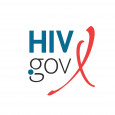The 2024 US Conference on HIV/AIDS (USCHA) opened on Thursday, September 12, in New Orleans, Louisiana. This year’s theme, “Southern Joy,” emphasizes the uniqueness and shared experience of communities in the South. HHS Deputy Assistant Secretary for Infectious Disease and Director of the Office of Infectious Disease and HIV/AIDS Policy Kaye Hayes, MPA, spoke with Presidential Advisory Council on HIV/AIDS (PACHA) member Dafina Ward, JD, and Executive Director, Southern AIDS Coalition and Harold Phillips, MRP Deputy Director of Programs, NMAC, about HIV in the South and the conference theme. Watch their conversation above or on YouTube.
In the video, Dafina shared her takeaways from the conference plenary’s session, “The South Has Something to Say!” and Harold shared his insights about why celebrating and uplifting the South is important to efforts to end the HIV epidemic. Dafina expounded more on the conference’s theme and the resiliency of the South as it relates to the epidemic, noting the importance of community and supporting those with HIV. She also said that the southern U.S. is “so much more than just the challenges we face. We are so much more than higher rates of HIV than you see in other parts of the country.” As she shared her final thoughts with Kaye, Dafina noted that “we don’t end the epidemic nationally if we don’t end it in the South. If we want to end the epidemic, the South has to be a priority for everyone across this country.”
In his remarks, Harold highlighted that the conference is an opportunity for those in the HIV field to connect, network, and focus their HIV-related efforts not only in the South but across the country. He also shared his thoughts about the need for accelerated efforts to end the epidemic, while highlighting that the success of these efforts is possible because “we’ve been intentional, we’ve been purposeful, and we’ve been focused. And we need to continue that and accelerate it in order to end the HIV epidemic,” he said.
NHAS and the Disproportionate HIV Impact in the South
The National HIV/AIDS Strategy highlights that the South bears a disproportionate HIV burden and calls for action focused on the geographic areas, including the South, most impacted. According to the latest data from the Centers for Disease Control and Prevention, not only do the highest rates of new HIV diagnoses continue to occur in the South, but in 2022, the South accounted for approximately half (49%) of the 31,800 estimated new HIV infections in the United States.
Organized by NMAC, the 28th Annual USCHA is being held Sept. 12-15. The conference features sessions on HIV in the South, aging, biomedical interventions, HIV stigma, and more. Follow all our conversations from USCHA 2024 on Facebook, YouTube, and HIV.gov.
This blog post was published September 13, 2024, on HIV.gov.








Comments
Comments